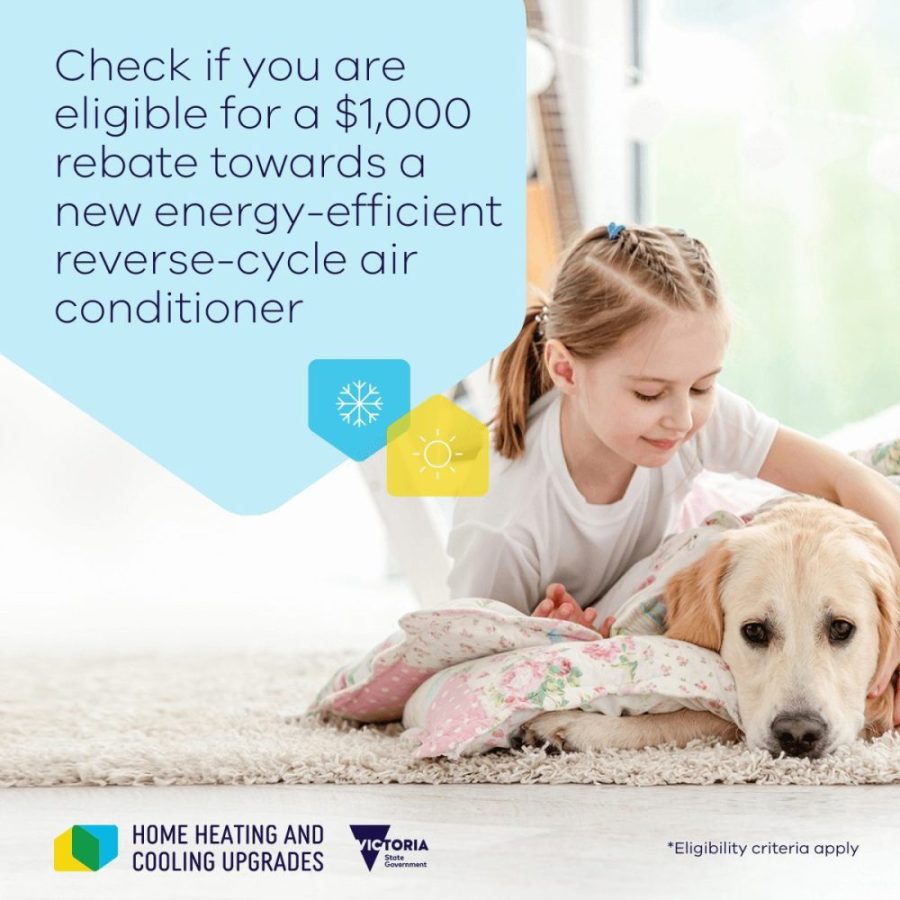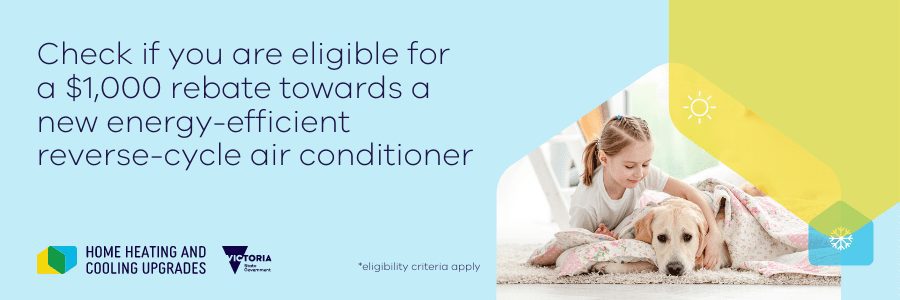In a perfect world we’d all just open a window or stick on a fan to cool down. But when it’s hot, some type of cooling brings sweet relief – especially at night when it feels too warm to sleep. Hot, tired and cranky is not how most people want to spend their summers.
Working out the pros and cons of evaporative and refrigerated cooling can be a bit daunting.
At Heatcool we can install and service many types of systems, so we’ve pulled together this list to help you decide what’s right for you and your home.
First up, what is evaporative cooling?
With this type of cooling system, a central cooling unit is normally installed on the roof of your home and connected to a series of strategically-placed ceiling ducts.
A pump pushes water from a reservoir onto filter pads or specially designed cells in the unit, and warm air drawn from outside is cooled by evaporation as it passed through the filters. And the cool air is then dispersed throughout your home via the ceiling ducts.
Generally, for evaporative cooling to work best, windows and doors should be open throughout the house.
How does refrigerated cooling work?
Essentially a refrigerated system removes hot air from an environment (e.g. your lounge room), cools that air with refrigerant gases, and returns the cooler air back into the room.
These systems have two components; the outdoor condenser unit where the refrigeration effect occurs and the indoor fan coil unit which consists of a heat exchange coil and fan.
For refrigerated cooling to work best, windows and outside doors must be closed.
So what’s best – evaporative or refrigerated cooling?
Let’s take a look and some of the advantages and disadvantages of each system.
Humid vs. dry climates
Living in beautiful Melbourne does give you an advantage when it comes to evaporative cooling – humidity here is usually pretty low. Evaporative systems work best in hot and dry climates.
Temperatures near to 27C are pretty typical with evaporative cooling, but factors such as the outdoor weather conditions and overall condition of your system can impact performance.
If you want colder air you’ll have to go for a refrigerated system.
And if you live somewhere humid, refrigerated systems will provide more reliable and effective cooling.
Cost to run
Hands down, evaporative coolers are cheaper to run than refrigerated systems. By a long shot.
Refrigerated cooling is arguably more reliable and effective, but it’s going to mean a bigger electricity bill during those sticky summer months.
Good insulation in your home will help reduce running costs for both systems.
You’ll also save in the long run with regular cleaning and maintenance. That’s done best by expert companies like Heatcool.
There’s also another cost to be aware of when using evaporative systems – water.
The model of evaporative system you use, the area you live in and the ambient conditions all affect water usage rates. You can ask HeatCool about the amount of water you’re likely to use, and your water company about the number of dollars you’re likely to be charged.
Air quality
With evaporative systems, the fresh air is constantly being pulled in from outside, filtered, cooled and then circulated through your home. The air is never re-circulated – it’s always fresh and clean, so ‘stale’ air isn’t an issue.
With refrigerated cooling, the air is re-circulated. That’s often preferable if someone in your home is allergic to pollens. However, recirculated air can be an issue if your system isn’t maintained properly and the filters become clogged. The air will feel stale and stuffy.
Another aspect to consider is the humidity of the air. Refrigerated air has less moisture and is therefore far drier.
Do I need to worry about “puddles” with evaporative systems?
If an evaporative unit duct is incorrectly positioned and directs cool air onto a hard surface, condensation can occur – leading to unwelcome build-ups of water.
No-one wants puddles in their home, but you don’t need to worry as long as the vents are correctly positioned and the system properly maintained.
Again, that’s why it’s vital to get expert help.
Environmental impact
Both systems use electricity to run – although the refrigerated option uses significantly more. Your best bet is to look for more energy efficient systems with a good “star rating”.
You might also want to factor in the emissions produced by the gases used in refrigerated cooling.
But don’t forget – the water usage in evaporative systems also leaves an environmental footprint.
Overall, the amount you use the system will probably be the biggest factor. For instance, high-end well-maintained refrigerated cooling used sparingly will probably have less impact than a whole-house evaporative system run 24/7.
Conclusion
Ultimately it’s down to personal preference. Both options have their pros and cons, but proper cleaning and maintenance is key
If you’d like more information on getting the best out of your cooling, which option is best for your home or business, or how to make sure your existing system stays in good shape, please get in contact.




